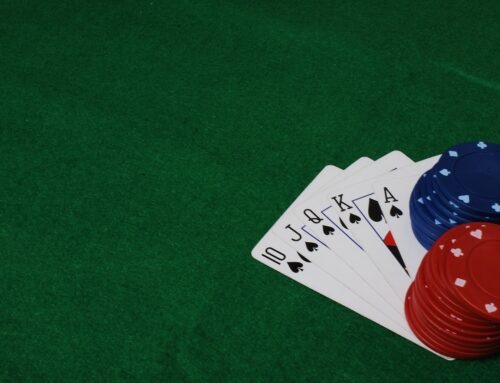Everything is in flux. The constituent parts of our world, as well as the relationships between those parts, are ever changing. They are differentiating and integrating, in a state of becoming. Anything that does not evolve and adapt in this ongoing flux is destined for extinction. Adapt or die.
Change
Any well-functioning system within a greater ecosystem will both seek change and resist change. The trick for surviving and thriving is to get the right balance between seeking and resisting, between being open to change and being closed to change. Part of what makes this difficult is that the right balance is itself changing all the time, and if we get the balance wrong we risk disintegration. If we are too open we risk being overwhelmed by too much change, and if we are too closed we risk atrophy through too little change.
The pace of change is itself not constant. With every technological advance the pace of change speeds up and we humans can feel overwhelmed by it all and we yearn for something fixed and solid to hold onto while everything spins faster and faster. Unfortunately, one of the things we try to make fixed is our very reaction to change, and this is a perfect recipe for suffering: to have a fixed way of being in the midst of ongoing and unstoppable flux. We get rigid and brittle, we get stuck, and we snap.
However, we need to be compassionate towards ourselves for adopting the flawed approach of having a fixed reaction to a shifting world. It’s probable that we have adopted this stock reaction because it had some positive payoff in the past. Perhaps this was a crucial part of our survival kit during a particularly tough time in our lives. The stock approach is generally formed in reaction to threats to our survival but the past success of an approach in a particular context does not mean it’s the optimal approach in all contexts and at all times.
It is better to acknowledge the deep truth in the old cliche that change is the only constant. We are better off if we relax our need to keep constant our reaction in the midst of that change. How much better it would be if we were able to respond fluidly to an ever-shifting set of circumstances. How much less suffering we would experience, and how much less suffering we would inflict.
Defensive Strategies
The three classic reactions when our survival is threatened are: fight, flight or freeze. Karen Horney, in her socially-oriented psychoanalytic theory, echoed these reactions when she wrote about the ways in which people adopt interpersonal coping or defensive strategies to avoid being hurt by others. She described three interpersonal styles on the basis of the direction of movement that we tend to prefer in relation to other people.
- Towards Others. In this movement the basic belief is I won’t be hurt if I give in. If this is our preferred strategy, we show up as compliant or submissive.
- Away From Others. The basic belief here is I won’t be hurt if I withdraw. If this is our interpersonal style, we tend to be detached or aloof.
- Against Others. The basic belief is I won’t be hurt if I have power. In this case, we would tend to be hostile or aggressive.
According to Horney’s theory we should be considered normal and well-functioning if we have available to us all three of these styles and we are able to use any one of them as the situation demands. On the other hand, we would be considered to be neurotic if we are fixated on one interpersonal style and employed only that style, irrespective of the situation.
Authentic vs Neurotic
This idea feels uncomfortable to many of us, it seems to conflict with our understanding of what it means to be authentic. Surely this means that if we are different people in different circumstances this is the very antithesis of being authentic? Surely it’s plain fake to pretend to be the person that we think others want us to be?
The key here is that authentic means real, it doesn’t mean fixed. We can fluidly use any of the three interpersonal styles and still be fully authentic. Whatever the interpersonal style we employ in a given situation, we can still be our fully authentic selves, and be our best selves for the particular context. In fact, if we do this we move from neurotic to authentic.
If we are well-functioning humans we can move, say, from the boardroom to the bedroom without sacrificing any authenticity. We can experience constructive and satisfying engagement in different contexts with a shift in our mode of functioning, by emphasising a different aspect of who we really are.
Flow
When our way of being shifts from fixed to fluid, when we are able to consciously align our mode of functioning with our environment, then we have entered a whole new dimension. We’re better able to experience flow.
Elite athletes sometimes refer to this as being in the zone, the experience where there is intense but relaxed focus on the task at hand, accompanied by a loss of self-consciousness and a sense of timelessness. The task becomes its own intrinsic reward. There is an experience of joy, even rapture, while delivering peak performance. There is a merging of awareness and action, where effortless ease can accompany extraordinary performance.
The shift that we need to make to our mode of functioning in response to a change in context can be very nuanced, something as subtle as a shift in our inner posture. This inner shift itself is not always visible, but the consequences of the shift can be significant in our inner and outer worlds.
Our immediate environment is ever changing, so if we are to experience flow we need to have a fluid inner posture, to keep aligning our mode of functioning with the changing environment. The more mindfully fluid we are, the better we are able to be aware of changing contexts. And the better we are able to respond to those changing contexts, the happier we’ll be and the better we’ll do.
Reflection
- What’s your usual way of coping with change or threat?
- How would it be if you gripped these strategies a little less tightly?
- What might this relaxation enable you to accomplish?
References
- Justin Newdigate: Noise (2019)
- Dorothy Becvar: Family Therapy: A Systemic Integration (2009)
- Mihaly Csikszentmihalyi: Flow (1990)
- Humberto Maturana & Francisco Varela: The Tree of Knowledge (1984)
- Karen Horney: Neurosis and Human Growth (1950).







Leave A Comment